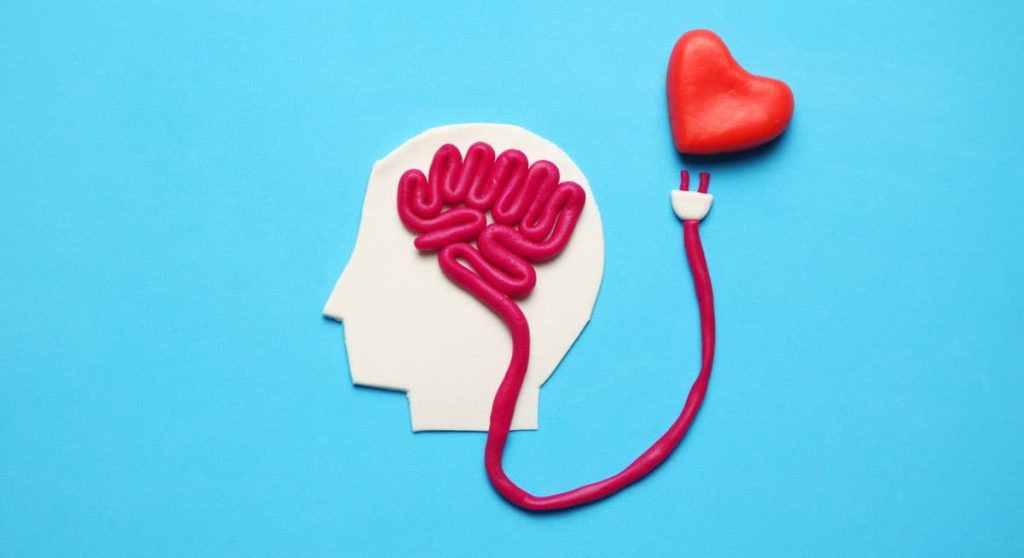Can depression increase your risk for heart disease?
Introduction
In today’s world, been depressed is one of the most common symptom found in adults. As per reports, one in every ten American adults is been associated with depression in one way or other. Depression is a kind of mental disorder that almost every person has to go through at some point in their lifetime. But the question is, can depression have a greater impact on your heart’s health than you think?
Mental conditions and heart disease

- Conditions such as heart attack and angina are also known as cardiovascular diseases. These conditions are more common among people living with depression than among the general population. We now know that depression is a significant risk factor for coronary heart disease, along with smoking, high cholesterol, and high blood pressure. The link between anxiety and heart disease is less well understood, but many people with anxiety also suffer from depression.
- In addition to making it harder for people with heart disease to recover, depression can also make them more prone to further heart problems in the future.
What sorts of mental health conditions affect heart disease?
Anxiety and depression are thought to relate to heart disease, both as a cause and an effect.
What is a Depression?
Depression is basically a common but serious mental disorder, medically termed as Major Depressive Disorder which negatively affects a person’s way of thinking, how the person feels and behaves. This mental disorder is different from mood fluctuations. In addition to causing emotional and physical problems, it can also make it difficult for you to function at work and at home.
Despite the existence of effective treatments for mental disorders, more than 75% of people in low- and middle-income countries do not receive any treatment. There are several barriers to effective mental health care, including a lack of resources, a lack of trained health-care providers, and social stigma associated with mental illness. People with depression in countries of all income levels are frequently misdiagnosed and prescribed antidepressants even when they do not have the disorder.
What is anxiety?
Anxiety can be referred as a response driven by your brain with respect to stress or danger alert. Anxiety can be triggered in situation which puts you under stress and heavy thinking such as public speaking, examination, important decision making, taking an important test, etc.
Usual anxiety is common in people which is trigger by several situation as mentioned just above. It is generally a mental condition caused by mental and physical stressful event as alone or combination.
When an individual observe anxiety due to triggering event occasionally, it is termed as occational anxiety which is considered as a normal condition. However, getting diagnosed to anxiety disorder is pretty much a different and much worse level.
Symptoms of depression
In a depressive episode, the individual experiences significant difficulties in personal, family, social, educational, occupational, and/or other important areas. The symptoms generally differs in terms of severity and natured which is based on individual occupation, gender, and age group. Depression symptoms can vary from mild to severe and can include:
- Changes in appetite
- Loss of energy or increased fatigue
- Increase in purposeless physical activity or slowed movements or speech
- weight loss or weight gain
- Trouble sleeping or sleeping too much
- Feeling sad or having a depressed mood
- Feeling worthless or guilty
- Difficulty thinking, concentrating or making decisions
- Thoughts of death or suicide
- Loss of interest or pleasure in activities once enjoyed
Furthermore, medical conditions such as thyroid problems, brain tumors, and vitamin deficiencies can mimic depression symptoms, so it is important to rule out general medical causes.
Triggering events
Events which triggers an individual’s emotional, psychological, or physical events or circumstances that can cause depression symptoms to appear or return are generally categorized as tiggering events. Some of the most general and major triggering events include:
- The loss of a loved one, the conflict within the family, and the change of a relationship are stressful events in life
- Recovery from depression is incomplete when depression treatment is stopped too early
- An illness or medical crisis, such as a new diagnosis or chronic disease such as diabetes or heart disease.
Links between mental health and heart disease
Following are some of the link between heart health and mental health.
- There is a significant independent relationship between depression and heart disease.
- Other known risk factors for heart disease (such as an unhealthy lifestyle) are associated with depression.
- People with heart disease are more likely to suffer from depression. As a result, recovery is affected and the risk of further heart attacks increases. As a result, heart attack patients with depression are generally less motivated to follow healthy daily routines, including skipping important medications, avoiding exercise and eating a proper diet, and engaging in harmful behaviors such as smoking and drinking alcohol.
REFERENCES:
- https://www.betterhealth.vic.gov.au/health/healthyliving/heart-disease-and-mental-health
- https://my.clevelandclinic.org/health/diseases/16917-depression–heart-disease
- https://www.hopkinsmedicine.org/health/conditions-and-diseases/depression-and-heart-disease
- https://www.heart.org/en/healthy-living/healthy-lifestyle/mental-health-and-wellbeing/how-does-depression-affect-the-heart
For more details, kindly visit below.